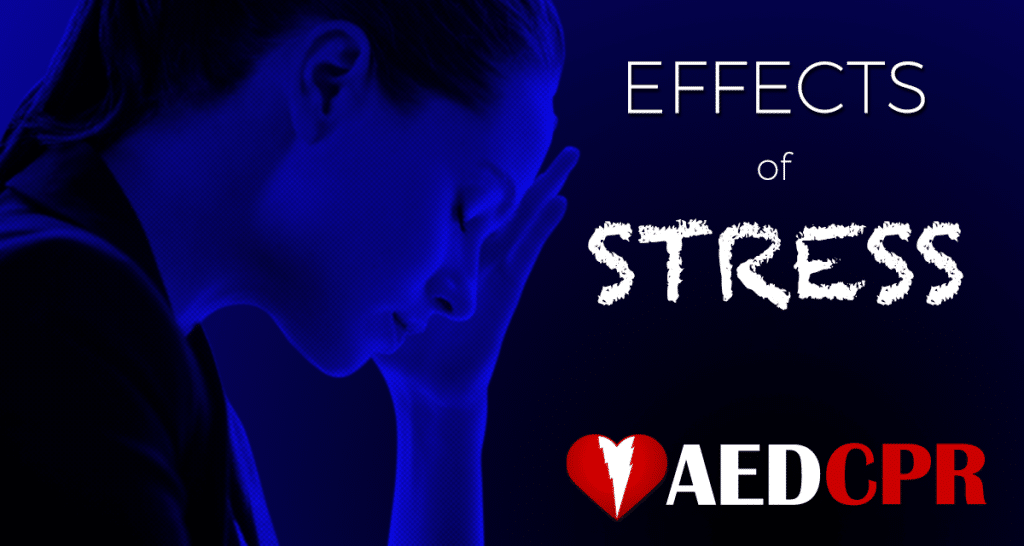
Stress is a normal part of life. It is our body’s natural response to any challenge or demand. Whether we feel threatened by an immediate physical danger, such as a car stopping short in front of us, or a psychological one, like the anxiety from taking a test, our bodies react similarly. The hormones released in response to stress heighten mental alertness, increase muscle tension, and raise our pulse. While acute (short term) stress can be useful in small doses by giving us that extra push until the threat has passed, chronic stress experienced over a prolonged period of time can negatively impact our health.
Stress and the Cardiovascular System
The cardiovascular system is comprised of the heart and blood vessels, which work together to provide nourishment and oxygen to the rest of the body. It also plays a key roll in the body’s stress response. Chronic stress can contribute to long-term problems for your cardiovascular health. But what exactly happens to your body during a stress response, and how does too much stress take its toll?
During a stressful event, the adrenal glands produce the hormones adrenaline, noradrenaline (also called norepinephrine) and cortisol as part of its natural fight-or-flight response. Both adrenaline and noradrenaline constrict the blood vessels, which leads to an increase in blood pressure. Blood vessels damaged by high blood pressure can narrow, leak or rupture.
Blood pressure should return to normal when the stress response is over. But people who deal with constant stress are also more likely to have hypertension under normal circumstances. The link here is still being studied. Some health experts speculate that it’s how we deal with stress makes a difference. It’s not uncommon for people to cope with stress by eating unhealthy foods, smoking, and other choices that can lead to health complications, including high blood pressure, high cholesterol, and more.
Both chronic stress and repeated acute stress can contribute to inflammation of the coronary arteries. Inflammation of the arteries can lead to atherosclerosis, and eventually heart disease, a heart attack or stroke.
Stress also has a way of messing with your heartbeat. Sudden episodes of acute stress as well as chronic stress disorganize your heart’s electrical signals, causing it to beat irregularly and resulting in poor blood flow. In many cases this arrhythmia is only temporary. In others, it can result in a chronic condition or be fatal.
Stress and the Respiratory System
A faster heartbeat means a greater need to breathe. For most people without respiratory disease, this isn’t usually a problem. But if you have an existing respiratory condition such as asthma or emphysema it can be dangerous. Stress can exacerbate breathing problems. Hyperventilating due to acute stress can trigger asthma attacks in asthmatics, and panic attacks in those who are prone to them.
Stress and the Musculoskeletal System
Muscles naturally tense up in response to stress. This is the body’s way of protecting itself from injury or pain. Normally, when the stress subsides, so does the tension and the muscles return to normal. Conversely, dealing with stress for long periods of time means your muscles are perpetually tense and have little time to relax. Chronic muscle tension can lead to other reactions throughout the body as well as stress-related disorders. For instance, tension-type headaches and migraines can be caused by muscle tension in the shoulders, neck and head. Chronic stress can also exacerbate the painful symptoms of arthritis and impede the healing of muscle injuries.
Stress and the Gastrointestinal System
Stress can make stomach problems like pain, nausea and bloating more easily-felt. In severe cases, it can lead to vomiting. Stress can also cause an increase or decrease in appetite, which may be a factor in unhealthy dietary choices.
Stress affects the speed at which food moves through the body, potentially resulting in constipation, diarrhea or gas. It can also weaken the intestinal barrier that protects the body from most food-related bacteria resulting in inflammation. Stress is also known to worsen the symptoms of Irritable Bowel Syndrome and Inflammatory Bowel Disease.
Stress and the Immune System
One of cortisol’s functions is to help regulate inflammation. Stress causes the body to produce more cortisol than it normally would. In short bursts this is fine, but eventually the body starts becoming resistant to its anti-inflammatory effect. Stress also lowers the amount of lymphocytes in the body, which are the white blood cells that help to fight off infection. This means people who deal with chronic stress are more likely to get sick.
Managing Stress
Stress is an unavoidable part of life, but that doesn’t mean there aren’t things you can do to manage it.
- Exercise regularly. Physical activity boosts your body’s production of endorphins. It can also improve your mood, concentration and dull the symptoms of ADHD and depression.
- Relax your muscles. Stretch, take a hot shower, and most importantly get plenty of sleep.
- Practice deep breathing exercises.
- Eat a balanced diet that has fruit, vegetables, whole grains and lean protein.
- Make time for yourself. Don’t be afraid to engage in your hobbies and take part in something you enjoy.
- Talk about your problems. Whether it’s a friend or a family member or a mental health professional, it’s important to not keep things bottled up.
- Cut out your stressors. It’s important to be able to identify what’s causing your stress and anxiety. Maybe it’s something you can live without.
